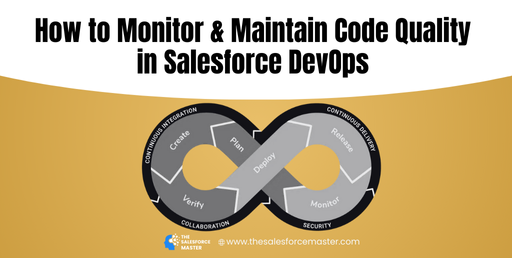
How to Monitor & Maintain Code Quality in Salesforce DevOps
Ensuring high-quality code in Salesforce DevOps is crucial for delivering reliable applications. By leveraging the right tools and best practices, teams can reduce errors and streamline deployments. This article explores strategies for monitoring and maintaining code quality effectively.
1. Leverage Code Analysis Tools for Proactive Monitoring
Code analysis tools, such as PMD and SonarQube, are indispensable for identifying issues early in the development lifecycle. They help detect coding standard violations, unused variables, and complex logic. By integrating these tools into Salesforce DevOps pipelines, teams can enforce consistent quality.
Moreover, utilizing tools that align with Salesforce Login workflows ensures seamless integration and user experience. Automation ensures every commit undergoes rigorous checks, thereby maintaining the standard across environments. To enhance collaboration, developers should regularly review these reports and promptly address flagged issues.

2. Implement Peer Code Reviews and Automated Testing
Peer code reviews are a proven method for catching potential issues missed during development. Encouraging team members to review each other’s code not only fosters collaboration but also improves overall quality. Salesforce Marketer teams, for instance, can benefit from reviews focused on campaign customization logic.
In addition to reviews, automated testing ensures that new changes don’t break existing functionality. Tools like Provar or Selenium can test Salesforce-specific components like workflows and triggers. This approach provides an added layer of security, especially for Salesforce Login authentication flows and marketing campaign integrations.
3. Establish Governance and Regular Performance Audits
Code governance practices are essential for ensuring compliance with organizational standards. Defining guidelines for naming conventions, commenting, and folder structures helps in maintaining consistency across teams. Salesforce DevOps teams can document these practices for easy reference and onboarding.
Regular performance audits further ensure the codebase aligns with expected quality standards. Leveraging analytics insights from Salesforce Marketing Cloud, teams can validate that their customizations are optimized for scalability and performance. Additionally, incorporating dashboards to monitor code health in real time simplifies the decision-making process.
Conclusion
Monitoring and maintaining code quality in Salesforce DevOps is an ongoing process that demands the right mix of tools, reviews, and governance. By incorporating automation, peer collaboration, and performance audits, teams can deliver reliable and scalable solutions. With a focus on Salesforce Login workflows and Salesforce Marketer keyphrases, organizations can ensure their solutions meet both technical and business objectives.


